- Home
- H A CULLEY
THE POWER AND THE GLORY Page 6
THE POWER AND THE GLORY Read online
Page 6
‘Yes, of course. I have a lot to do now to sort out my own kingdom and if my warriors grow restless I can always raid the Isle of Man or Ireland.’
This last remark was said with a grin. Oswiu began to warm towards Cadwalladr and he smiled back.
‘Fine. I’ll send my clerics to meet yours and they can draw up the treaty in writing.’
Oswiu went back to his camp feeling pleased with himself but the grin was wiped from his face when Cuthbert, now one of his gesith, came into his tent.
‘Cyning, there is a messenger from Bishop Utta, who has apparently arrived in Eoforwīc looking for you.’
‘Do you know what the message is, Cuthbert.’
The latter looked uncomfortable.
‘I fear it is not good news, Cyning. There is civil war in the land of the Picts.’
‘I see.’ Oswiu had been looking forward to a wash in the river followed by a few hours of well-earned sleep. It seemed it was not to be. ‘Well, you had better show the messenger in then.’
Oswiu read Utta’s letter with a sinking heart:
Cyning,
I fear that I’m the bearer of ill tidings. Your nephew, King Talorgan, has sent me to inform you of the perilous situation he finds himself in. Two months ago Bran, the King of Cait, renounced his allegiance to Talorgan as high king. As Cait covers a colossal area of largely uninhabited land in the north of Caledonia, Talorgan didn’t feel that he could effectively contest Bran’s decision but he sent an emissary, one of my priests, to ask him to reconsider. Bran sent his head back in a basket.
Immediately two of the other kings, Garnait and Drest, started to pressure Talorgan to attack Cait and depose Bran. Of course, it was merely a ploy and, when Talorgan sensibly ignored their advice, they accused him of cowardice.
Fergus of Ardewr, whose kingdom is the only one which physically adjoins Cait, backed Talorgan’s stance but the King of Uuynnid sided with Drest and Garnait. Maelgwn of Penntir, surrounded as he is by Ardewr and Talorgan’s own kingdom of Prydenn, has remained neutral so far.
When I left Talorgan was being besieged by Drest and Garnait in his fortress of Stirling. He has sent messengers to Domangart of Dalriada and Guret of Strathclyde asking them to come to his aid. I beg you to send as many men as you can spare to support your nephew before it is too late.
With Christ’s blessings,
Utta.
Oswiu groaned in despair. Just when he had killed his arch-enemy Penda and subdued the Welsh, now the north was in flames again. Privately he thought that an invasion by the men of Dalriada and Strathclyde, both ancient enemies of the Picts, would only turn all of Talorgan’s subjects against him. He wished now that he had killed Drest and Garnait when he’d had the opportunity after Talorc had been deposed as high king.
He would have to go north to see if it was possible to resolve the dispute peaceably. After thanking the messenger he sent for his Hereræswa.
‘Redwald, I’ll need to send messengers to Domengart and Guret asking them to come and meet me at Caer Luel. Oh, and I’ll need a birlinn to take me there. It’ll be much quicker by sea than on horseback. Only my gesith need to come with me but warn the warbands to be ready to join me as soon as the treaty with Cadwalladr is signed. You had better stay here for now.’
‘Who will sign the treaty if you’re not here, Cyning?’
‘My son, Alchfrith.’
CHAPTER FOUR – INTO THE LAND OF THE PICTS
657 AD
Catinus was making love to Leoflaed when the messenger from Oswiu arrived in the middle of February. His new wife had proved to be everything he wished for, in bed and out of it, and now she had given him the greatest present of all. She had confided to him that she was fairly certain that she was expecting their first child. It had been less than four months since they had wed, but she said all the usual symptoms were present. He wasn’t sure what she meant, and didn’t want to know, but he had been concerned recently when she kept vomiting for no apparent reason. He assumed that had something to do with it.
His idyllic life came to an abrupt end when he received the order to muster his fyrd and bring them, with as many members of the garrison as could be spared without leaving the fortress vulnerable, and join the king at Dùn Èideann as soon as possible.
Catinus hadn’t been idle over the winter. Once he’d become Ealdorman of Bebbanburg Oswiu had withdrawn his garrison to join his main warband based at Eoforwīc. A few married men had elected to stay and these formed the nucleus of Catinus’ own warband. Over the past four months he’d been recruiting hard but he’d been careful who he selected. He’d rather have a boy of fourteen eager to train as a warrior than a man who seemed untrustworthy or idle.
In consequence he now had twenty men who were able to both ride and fight dismounted to a reasonable standard and another twenty youths under training. Eventually he hoped that they would all be able to fight on horseback as well. He decided to leave the trainees behind with two instructors to defend his fortress, together with a few archers who had been called up with the fyrd. He left Leoflaed in charge, assisted by the reeve.
As ealdorman he’d been given ten vills but not all had a thegn. Lindisfarne and another vill on the mainland belonged to the monastery. However, Finan was still obliged to furnish ten armed men to join the fyrd. These were ceorls who farmed their own land but paid rent and taxes to the monastery. They brought with them two boys to act as servants, as did the contingents from the other vills.
Catinus hadn’t been readily accepted as overlord by all the thegns and one, in particular, had resolutely refused to pay him homage. Now his muster of the fyrd was ignored and Catinus had to act or lose the respect of both the other thegns and his own men.
He left the rest encamped at Bebbanburg and took his warband over to visit the rebellious thegn in his settlement at a place called Wooler. Like most thegns, Eboric kept a few warriors who lived in his hall. They collected his taxes, protected him and trained his ceorls to fight as members of the fyrd. When Catinus and his twenty men rode into the settlement he found himself confronted by Eboric supported by six warriors and a dozen other armed men, several with hunting bows.
He dismounted and walked up to Eboric. The thegn was a big man, both in girth and height, and was at least a decade older than Catinus. Two of the men wearing padded leather jerkins beside him looked like younger versions, presumably his sons. The other four warriors were elderly and they looked distinctly uncomfortable. Catinus ignored Eboric and spoke instead to the men around him.
‘Your thegn is in rebellion against King Oswiu and must pay the price for that rebellion. If you support him you too will face the king’s justice; you will hang, your homes will be destroyed and your families will be enslaved. Is that what you want?’
‘You are no noble, Catinus, merely a Mercian serf who has become Oswiu’s pet. I refuse to bend the knee to you, but I am a loyal servant of the king’s.’
‘Let us be clear about this,’ he continued, looking each of the men behind Eboric in the eye one by one. ‘The king has made me Ealdorman of Bebbanburg and the Witan of Northumbria has approved my appointment. Anyone who refuses to obey me as their lord is refusing the orders of the king and the Witan. Are you prepared for the consequences? Are your families?’
All except Eboric and one of his sons were now looking at each other uncertainly.
‘I am loyal to my thegn but I will not rebel against the king,’ a man with muscular arms and a powerful body said, throwing down his sword and shield.
Later Catinus learned it was the blacksmith; a man of influence in the vill. Several other men followed his example and they withdrew to one side. More followed until just Eboric, his sons and his warriors remained facing him. The thegn looked at his ceorls in disgust and spat in their direction.
‘Would you let this dog, a Mercian, a Briton and a serf, order you about. You disgust me.’
With that he drew his seax and went to stab Catinus in the stomach. He never reache
d him. His younger son grabbed hold of him to restrain him but the elder went to his father’s aid, grabbing hold of his brother. Both fell to the ground and there was a nasty crack as the younger man’s neck broke.
The thegn cradled his dead son for a moment, tears running down his face, then arose with a cry of fury and went to jab his seax towards Catinus again.
Before Catinus was able to react an arrow flew out of the ranks of his men and pierced the thegn’s byrnie, shattering the links of chain mail and entering the man’s heart. He died instantly.
The ealdorman looked to see who had saved his life and nodded at Leofric, who had nocked another arrow to his bow ready to kill anyone else who threatened his master. It was just as well. The surviving son looked down in horror at his dead father. He’d never liked his brother so he regarded his death as unfortunate but little more. However, he had worshipped his father. With a bellow of fury he drew his sword intending to kill Catinus, but the latter was too quick from him. His own sword was in his hand in time to block the blow and he counter-attacked.
It was evident that Eboric’s son, although a large, well-muscled man, had little or no skill with a sword. Within a minute he was on the defensive as Catinus’ blade feinted and jabbed at him. The man didn’t come anywhere near touching the ealdorman but Catinus relentlessly drew blood in a series of small cuts to his face, legs and arms. Leofric had lowered his bow. If he tried to use it now he was just as likely to hit Catinus.
Catinus sensed the big man was tiring and decided to end it. He feinted again at the man’s abdomen and, when he dropped his sword to block the move, Catinus suddenly changed the direction of the thrust and aimed at his neck instead. The third male member of the thegn’s family dropped dead to join his father and brother.
The ealdorman wiped his blade clean on the man’s clothing and sheathed his sword.
‘Where’s the reeve?’
A small man, still armed with a spear and shield, stepped forward.
‘Give these three a Christian burial. Until I appoint a new thegn, you will manage the vill on my behalf. You had better stay here for now.’
The man nodded, relieved that he wouldn’t be going to war. Catinus’ eyes swept over the four warriors.
‘Who is the senior?’
‘I am, lord.’
‘Gather what you need. I expect you and the rest of these men to join the muster at Bebbanburg by noon tomorrow.’
‘Yes, lord. We’ll be there.’
At that moment two women, presumably Eboric’s wife and daughter, came running out of the hall and threw themselves on the bodies of the three men. Catinus hadn’t considered that there might be other members of the family and for a moment he was at something of a loss. Then his eyes lit on a young boy, perhaps eight or nine years old, standing wide-eyed and nervously wringing his hands, outside the hall.
‘Who’s the boy, reeve?’
‘The thegn’s youngest son, Octha, lord.’
Catinus thought for a moment. He didn’t want the boy to grow up hating him and nursing a desire for revenge. He had a choice. He would either have to ask the king to disinherit him or accept him as his father’s heir. He beckoned the boy, who hesitated but then reluctantly approached him. Catinus noticed with surprise that he walked with a pronounced limp. He led the lad away out of earshot.
‘Octha, do you understand what just happened?’
‘Yes, lord,’ he answered in a soft voice. ‘My father and brothers are dead because they opposed you.’
‘Not just me, the king as well.’
‘Yes, lord. I know they were wrong to do so.’
Suddenly he broke down and started to sob.
‘Is it wrong of me to be glad that they are dead?’
‘Glad? Why?’
‘My father and the others belittled me because of my limp, saying that I’d never be of any use to anyone. My leg was broken in a fall when I was four and it never healed properly. I tried to love them as it says I must in the Bible, but I grew to hate them. My mother is no better, she always sided with my father.’
‘What about your sister?’
‘Sister? Oh, she’s my bastard half-sister. She’s my mother’s maid. My father took one of the laundry maids as his mistress and she disappeared shortly after the baby was born.’ He shrugged. ‘Everyone said that my bloody mother was responsible.’
Catinus was a little surprised at such language from a young boy, but no doubt it came of being brought up in an atmosphere where there was no love, only hate and discord. He made his mind up then that he would take Octha to Finan on Lindisfarne to be educated. Perhaps the infirmarian might be able to do something about the limp as well. In due course Octha could either become a monk or return to the vill as its thegn, provided he was prepared to swear allegiance to him of course. In the meantime the reeve would manage it for him. If the boy became a monk, then the vill would be given to the monastery.
‘What will happen to my mother?’ Octha asked diffidently.
‘She will become a nun. I’ll send her to the king’s sister at Coldingham, and your half-sister can go with her.’
The boy’s normally handsome face was disfigured by a look of grim satisfaction that reflected the hate he felt for them.
‘And me?’
‘I’m taking you to Bishop Finan. You’ll become a novice monk for now. When you reach fourteen you can decide whether you wish to remain as a monk or train as a warrior and later return here as thegn.’
‘Me? The thegn?’
‘Provided you swear to be loyal to me.’
‘Of course, lord. You’ve saved me from a life of misery. I’ll always be grateful to you.’
~~~
When Catinus rode into the encampment beneath the fortress of Dùn Èideann he was followed by eight thegns, twenty five other horsemen, forty other trained warriors on foot and another ninety men to supplement the fyrd. The baggage train contained a number of carters and servants leading packhorses. However, Leofric wasn’t amongst them. Catinus had freed him for saving his life and, although the boy remained as his body servant, he now rode behind his master carrying his new banner of a stylised Celtic beast in yellow on a red background.
The journey had taken six days, rather longer than he’d expected. However, it had rained almost incessantly for the first three so that, when the sun put in a very welcome appearance on the fourth day, he decided to stay at the overnight camp to allow everyone to dry out their clothing and clean the rust from their armour and weapons.
It had rained again on the last two days but this time the showers were interspersed with periods of fine weather. As the Firth of Forth came into sight they emerged from the trees and the incessant drip of water from leaves, even when the sun was shining, to see Oswiu’s army encamped outside the settlement under the dominant fortress on top of its rock to the west.
Catinus was surprised by the vastness of the camp; at a rough guess there must have been at least three thousand men there. He reported to the king’s tent and was welcomed by Oswiu and the other nobles already there – or at least by most of them. A few of the eorls were still not reconciled to his elevation, or that of Alweo come to that. Their hostility wasn’t only due to his lowly birth status and the fact that he was a native Briton born in Mercia, they also objected to the whole idea of ealdormen.
There were some thirty eorls in all, some ruling large territories like the former kingdoms of Elmet, Rheged and Goddodin, and others only presiding over a score or so vills. The latter were little different to the new ealdormen in that respect and therefore they were concerned that they might lose their status as eorls in due course.
In fact that was exactly what Oswiu intended. Gradually, as they died off, their replacements would be termed ealdormen and the number of eorls would be reduced to four – for Goddodin, Rheged, Bernicia and Elmet, with Deira being ruled by one of his sons as sub-king. Of these, only Bernicia and Deira had a plethora of small eorldoms at the moment and Goddodin had three
. But all that would have to wait. The priority for now was to bring the Land of the Picts back under his influence and nip the incipient civil war in the bud.
The current situation was a worry but it wasn’t that which really depressed him. It was his estrangement from his wife. He simply couldn’t understand why she was so upset. He had six children, three of them by Eanflæd, and dedicating one of them to serving Christ seemed entirely understandable, even obligatory, to him. Of course, Alchflaed had also become a nun after her disastrous marriage to Peada, but that had been her choice, not his.
In his mind sending their daughter Ælfflaed to Hild when she was still a baby had been sensible. Eanflæd would only have become more attached to her had he delayed. In any case, he needed to express his gratitude to God by doing something tangible at the time for his victory over Penda, not at some time in the future.
Eanflæd had said that she couldn’t continue to live with him and had only agreed to stay at Eoforwīc after Oswiu had announced his intention of taking the army north. His one hope was that they could be reconciled when he returned. He still loved her deeply and the thought that she might retreat to a monastery worried him every waking moment.
He tried to put his grief at her hostility towards him to the back of his mind. It was distracting him from the current problem. Talorgan was trapped in the fortress at Stirling, besieged by Garnait and Drest. Cait, Penntir and Uuynnid had remained neutral whilst Ardewr and Prydenn, Talorgan’s own kingdom, had mobilised to go to Talorgan’s help. However, before anyone was able to lift the siege rumours circulated that Talorgan had been killed.
It later emerged that he had led a night time raid on the besieger’s camp. It had been successful but Talorgan had been separated from his men in the darkness and killed as the others were withdrawing back to the fortress. His body had been displayed the following morning to encourage the garrison to surrender to Garnait.
The high king had had the sense not to infuriate Oswiu and the people of Prydenn further by mutilating the body, though he would dearly have loved to exhibit his head on a pole, and it was given a Christian burial. By the time that the news reached Oswiu at Dùn Èideann the summons had already gone out for a meeting of the six remaining kings to elect a new high king and to decide who should rule Prydenn now as Talorgan was the last of his line.

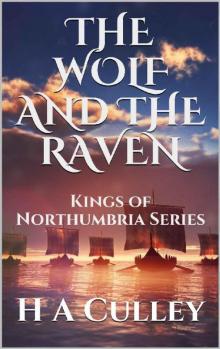 The Wolf and the Raven
The Wolf and the Raven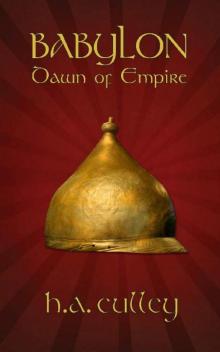 Dawn of Empire
Dawn of Empire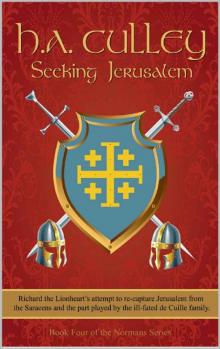 Seeking Jerusalem
Seeking Jerusalem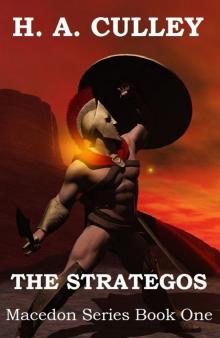 The Strategos
The Strategos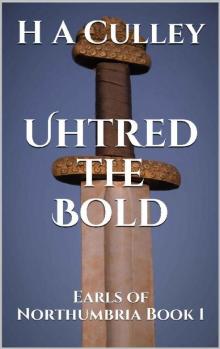 Uhtred the Bold
Uhtred the Bold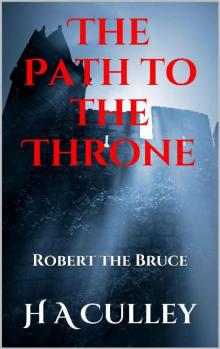 The Path to the Throne
The Path to the Throne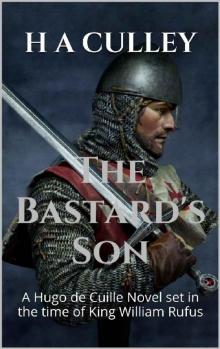 The Bastard's Son
The Bastard's Son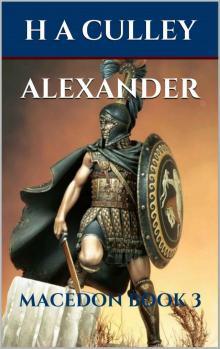 Alexander
Alexander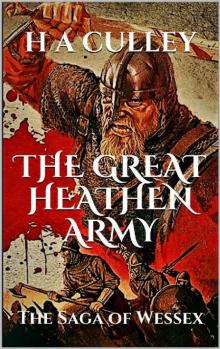 The Great Heathen Army
The Great Heathen Army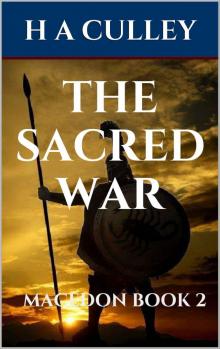 The Sacred War
The Sacred War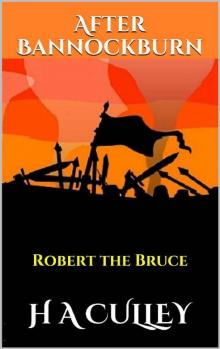 After Bannockburn
After Bannockburn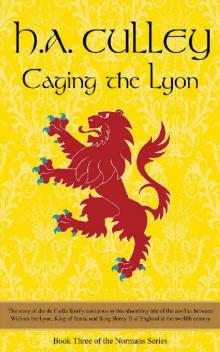 Caging the Lyon
Caging the Lyon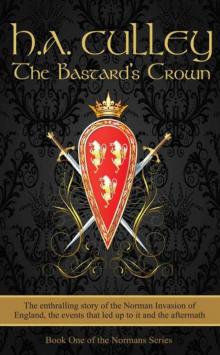 The Bastard's Crown
The Bastard's Crown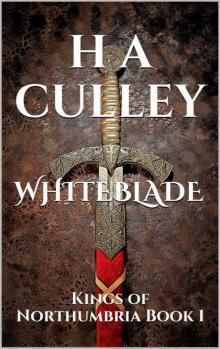 WHITEBLADE
WHITEBLADE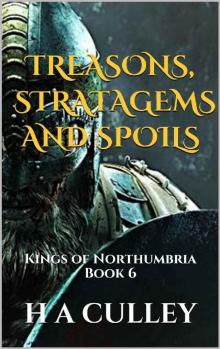 TREASONS, STRATAGEMS AND SPOILS: Kings of Northumbria Book 6
TREASONS, STRATAGEMS AND SPOILS: Kings of Northumbria Book 6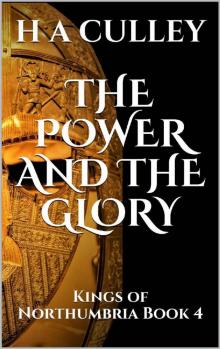 THE POWER AND THE GLORY: Kings of Northumbria Book 4
THE POWER AND THE GLORY: Kings of Northumbria Book 4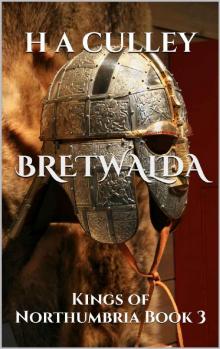 BRETWALDA: Kings of Northumbria Book 3
BRETWALDA: Kings of Northumbria Book 3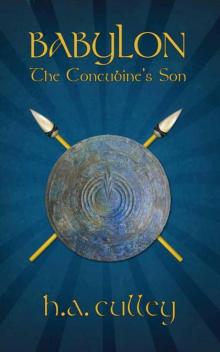 The Concubine's Son
The Concubine's Son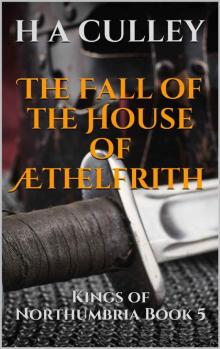 The Fall of the House of Æthelfrith: Kings of Northumbria Book 5
The Fall of the House of Æthelfrith: Kings of Northumbria Book 5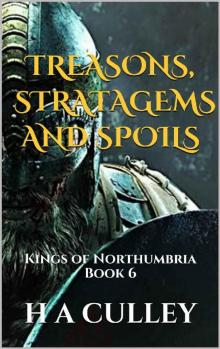 TREASONS, STRATAGEMS AND SPOILS
TREASONS, STRATAGEMS AND SPOILS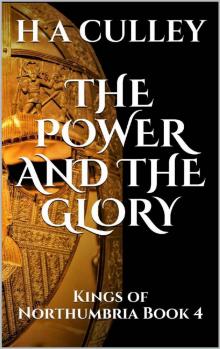 THE POWER AND THE GLORY
THE POWER AND THE GLORY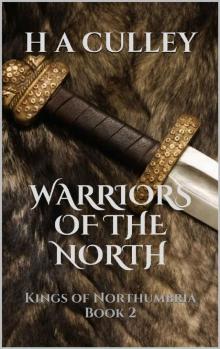 WARRIORS OF THE NORTH
WARRIORS OF THE NORTH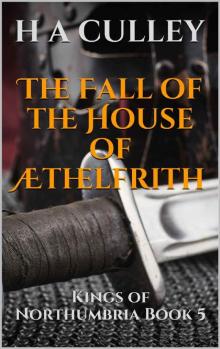 The Fall of the House of Æthelfrith
The Fall of the House of Æthelfrith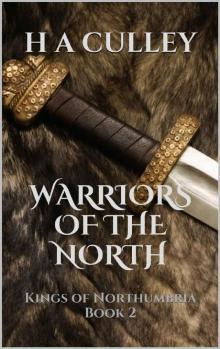 WARRIORS OF THE NORTH: Kings of Northumbria Book 2
WARRIORS OF THE NORTH: Kings of Northumbria Book 2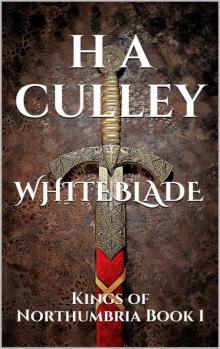 WHITEBLADE: Kings of Northumbria Book 1
WHITEBLADE: Kings of Northumbria Book 1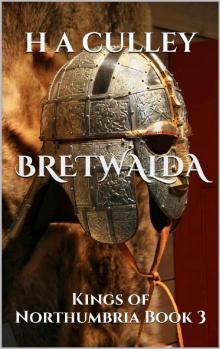 BRETWALDA
BRETWALDA